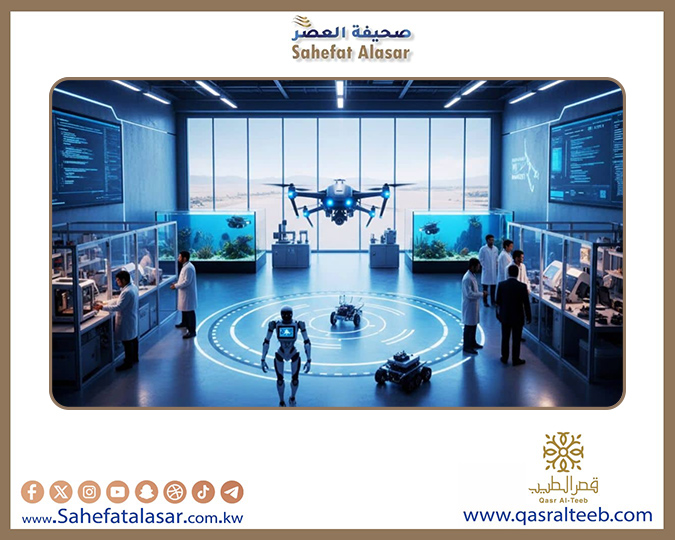How does KAUST's Robotics Bay Lab promote Saudi Arabia's leadership in artificial intelligence and robotics?..
In an era of rapid digital transformation and global economies moving towards knowledge-based innovation, robots and autonomous systems are no longer a technological luxury, but have become key pillars for building a sustainable future and smart societies.
The launch of KAUST's Integrated Robotics Lab, called Robotics Bay, in October 2025 marks Saudi Arabia's entry into a new phase of technical empowerment.The 1,000-square-meter facility is designed to be an accelerator of sovereign technological innovation, focusing on enabling the Kingdom to lead the transformation in the fields of robotics and artificial intelligence, and the real importance lies in the ability of this facility to transform knowledge research into practical applications that serve the development goals of Vision 2030, especially in the localization of technology and building a society based on local knowledge and competencies.
(Robotics Pay) and Automation Engineering. Accelerating the Cycle of Technical Innovation:Robotics Bay has an advanced robotics technology infrastructure, placing it among global centers such as the University of California, San Diego, the California Institute of Technology (Caltech), and the University of Michigan. The lab houses a spacious central experiment arena designed to test a variety of robotic systems, surrounded by specialized research and development labs led by KAUST faculty.The lab is designed to accommodate multi-modal robotic platforms, whether aerial such as robotic and drone, ground-based or underwater robots, in a single integrated environment, giving researchers great flexibility in designing and testing intelligent systems in real-world conditions that simulate industrial and field applications.The facility also provides advanced protomodeling tools such as 3D printers, CNC machines and precision welding stations, which enable researchers and students to turn ideas into real prototypes quickly and efficiently, accelerating the innovation cycle.Promoting technical sovereignty and localizing knowledge:"With the launch of the Robotics Bay Lab, we are reaffirming KAUST's commitment to driving technological innovation and developing smart solutions that contribute to the national economy, and localize knowledge in the fields of robotics and artificial intelligence," said Professor Gianluca Citi, dean of the Department of Computational, Electrical and Computational Science and Engineering at KAUST.The facility is led by Professor Eric Veron and Associate Professor Shinkyo Park, who lead research teams specializing in aerospace, transportation and electrical engineering, and their research focuses on designing collaborative multi-system robots capable of operating in dynamic and complex environments.



